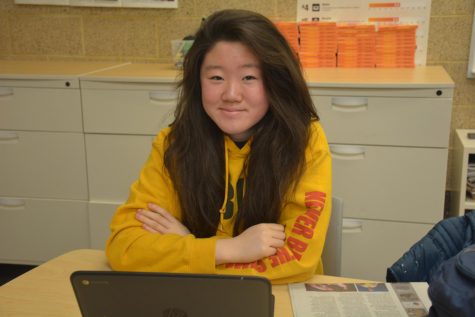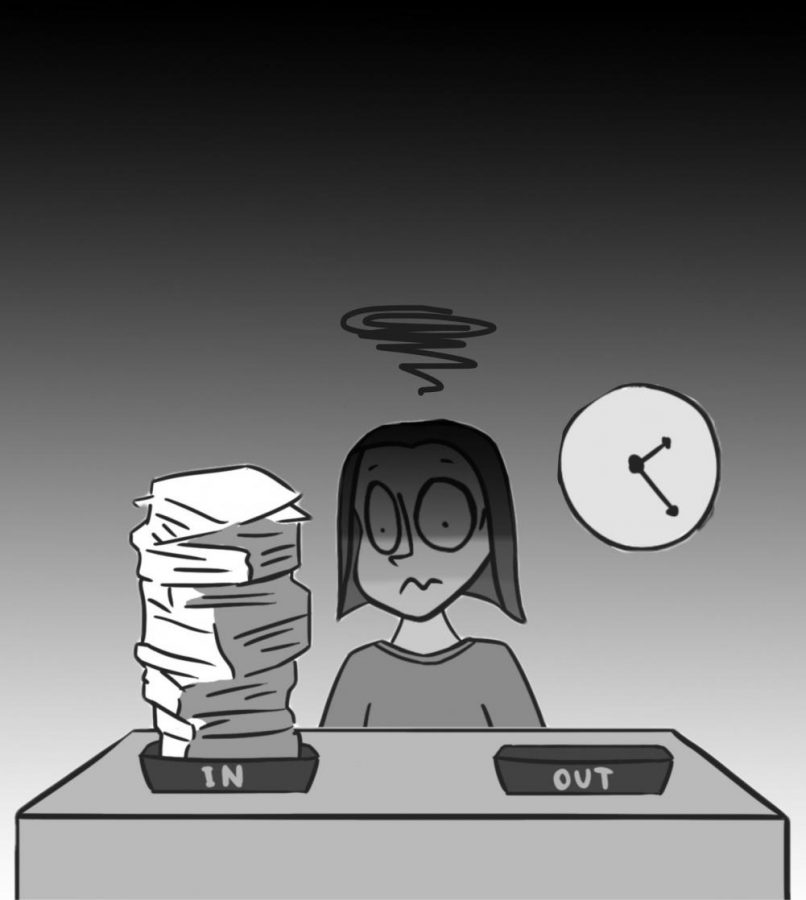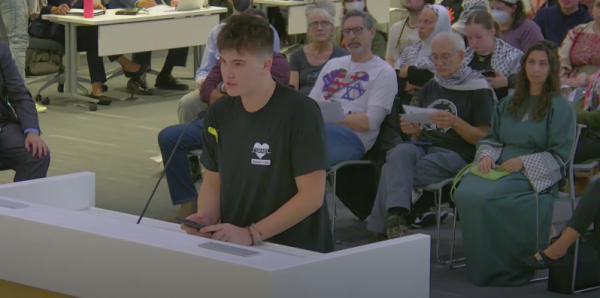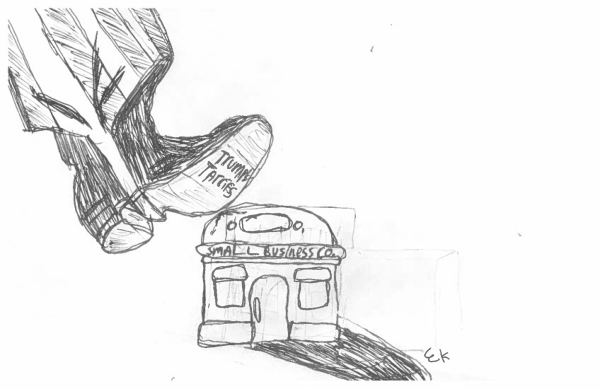Want to Improve Student Mental Health? Reduce AP Course Loads
“Beachwood students are accelerated in math as early as 3rd grade, and once a student is on that track, it is very hard to leave. The vast difference in the educational tracks becomes more significant as the number of options decrease as they progress through the school.”
Tonight, many BHS students will complete an egregious amount of homework. They will read several chapters of a book assigned from their high level English class, complete an assignment from a college level math class, study for a test in their advanced level science class and do some reading for AP history.
We think we’ve reached a time of reckoning at BHS, and now we must decide when enough is enough. Should students take so many AP and honors level courses that they don’t enjoy school anymore, or should we find a solution to this monster that’s been created by offering alternatives to 4, 5, 6 or even 7 AP classes that would still make students successful at the highest level?
Keep in mind, the average college course load is 4-5 classes per semester. The average AP course load per semester for BHS Students is 2 AP courses per semester, but it is not uncommon to find juniors and seniors taking more than 4 APs in addition to honors classes, college prep, electives, sports, extracurriculars, a social life, work and responsibilities at home. As a result, many Beachwood students are over-stretched, over- stressed and in a constant state of mental exhaustion.
The school has provided a greater focus on students’ mental health and wellness in recent years,
providing a range of activities from therapy dogs to mental health and wellness challenges and assemblies on sucide awareness, but we continue to fail to address one of the major stressors on student mental health: AP overload. Over the past five years there has been a steady increase in the average number of AP classes taken by Beachwood students from 1.9 to 2.5 AP classes per semester, according to data provided by the school district. No student should feel as if their only choice is to take an AP class they are neither interested in nor ready for. No student should get to the point where they feel overwhelmed and alone with no one to reach out to.
If we are really serious about mental health, we need to start a conversation about how many AP’s is too many AP’s. We believe that the high school needs to offer more alternatives to AP courses. For example, there is no honors level English offered for 11th and 12th grade students. This puts many students who want to challenge themselves but do not want to take an AP course in a difficult position. While CCP English is an option, it isn’t for everyone. Does one tough it out and take the AP class or take the college prep level and worry about not getting the AP credit on their GPA?
Pressure to overload on AP classes often comes from families, but the school can do more to demonstrate that academic load is not the only thing that will get students into college. Families have genuine anxiety about the college process, and as a result, many feel that taking exclusively AP classes is the only route to admission into an elite university. We are all aware of the hyper-competitive atmosphere that encourages students to boast how many AP classes they are taking, how sleep deprived they are, and how they will get into a “better” college than their peers. Pushing students to take an unrealistic number of AP classes creates a school culture that values higher GPAs and test scores above exploring one’s interests and enjoying the high school experience.
In AP classes, every aspect of the AP test looms large over students’ heads from the first day of class, with questions like, “will this be on the AP test?” being commonplace. It’s rather silly that one 2-4 hour test at the end of the year in which you can score a number from 1 to 5 is representative of all you have learned. It puts an undue amount of pressure on students to get perfect scores and for teachers to teach to the test, leaving little room for exploration and enrichment.
All of this makes students forget what high school is all about: learning how to be a functioning adult. Studying five days a week is very important, but going to football games on Friday nights, hanging out with friends late on Saturday night, playing sports and participating in clubs is what you’ll remember, not how you took too many AP classes your junior year. Students need to remember that clubs and sports, not classes, will develop them into a more functioning adult by allowing them to practice their leadership and social skills with like minded individuals.
A “well rounded student” is a term that is often thrown around when applying to college and selecting courses for the next academic year. But it begs the question: is a well-rounded student someone who loads up on AP classes, or a student who takes a moderate number of AP classes along with electives that interest them?
After freshman year, students need choices that make sense for their personal well-being. Seeing a list of 10 AP options leads students to believe they need to take as many as possible in order to compete for positions in selective colleges and honors programs. Being put in an accelerated track also limits a students’ options to almost all APs. Beachwood students are accelerated in math as early as 3rd grade, and once a student is on that track, it is very hard to leave. The vast difference in the educational tracks becomes more significant as the number of options decrease as they progress through the school. Many accelerated students will exhaust the AP level math courses offered and progress to multivariable calculus, which is higher than the AP level.
Selective colleges want to see students taking the rigorous classes that their schools offer, but they also want students on their campuses who follow their passions – whether it be through clubs or elective classes.
One possible solution is for Beachwood to offer more interest-based electives. Currently, BHS offers 17 elective classes, compared to 28 AP classes. One way to expand these offerings would be to offer additional electives every other year. Teachers can teach classes based on their interests while still teaching core classes. Classes such as astronomy, the science of basketball, or art history could be offered by staff members who are interested. If teachers offered their electives every other year it would give students ample opportunity to take classes they are interested in while also meeting graduation requirements. Along with giving students a break from core classes, electives provide a gateway for chasing passions and pursuing a more diversified education.
We don’t have all the answers on the path forward; however, the status quo is not acceptable. It is time for parents, students and the school to ask the question of how academic load affects students’ well being and what are solutions that give everyone both opportunity and choice.

Zilin Zhang began writing for The Beachcomber in the fall of 2018. She covers a variety of topics in the school. Her hobbies include playing...












